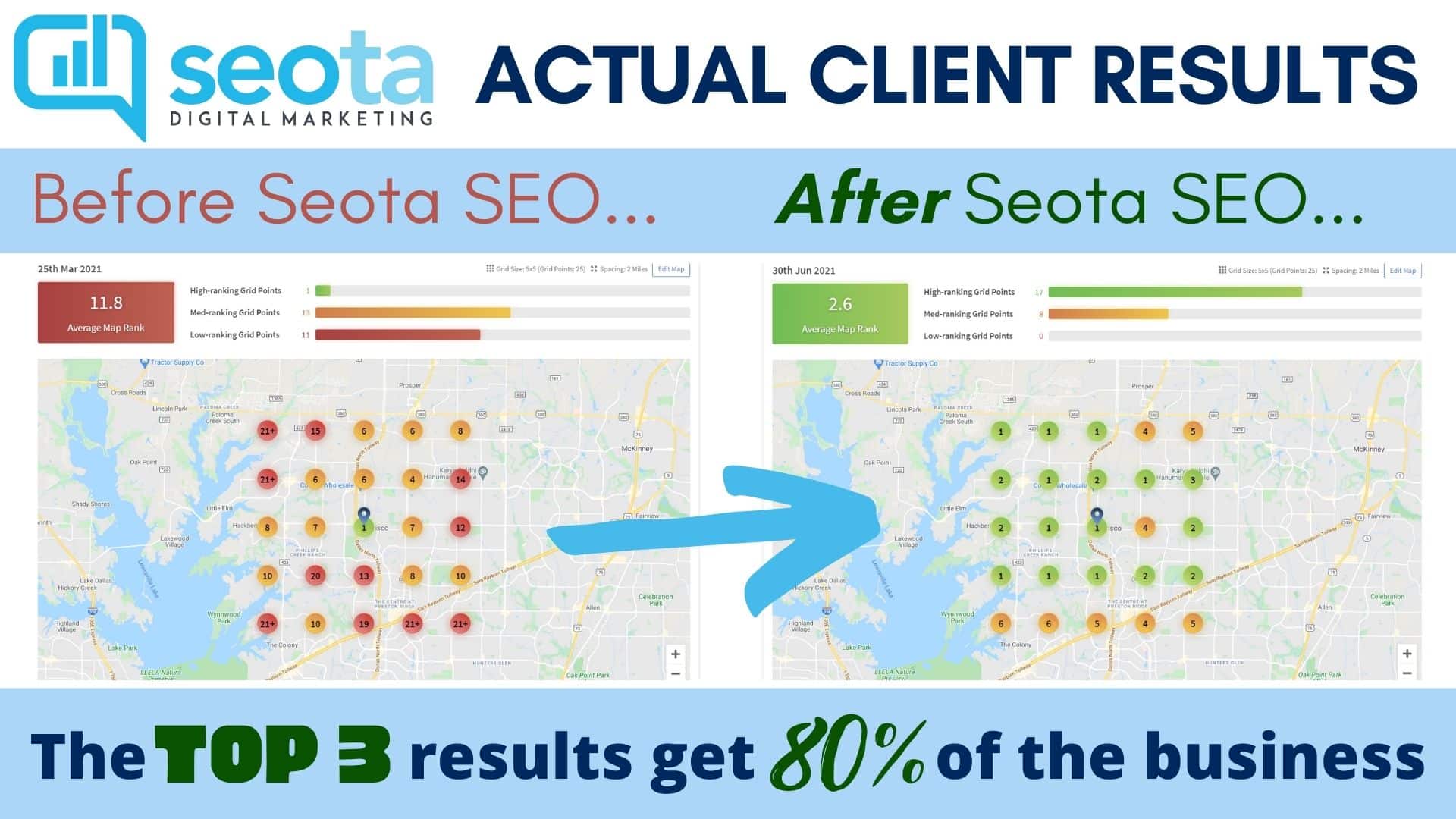In the dynamic world of digital marketing, a robust multi-location SEO strategy is imperative for businesses aiming to thrive in today’s competitive landscape. However, despite meticulous planning and execution, many businesses find their efforts falling short of expectations. Unraveling the reasons behind these shortcomings is crucial for driving improvements in rankings, lead generation, and, ultimately, sales conversions. In this article, we’ll explore the core reasons why your multi-location SEO strategy might not be performing as expected and provide actionable solutions to bridge the gaps.
Lack of Foundational Understanding:
At the heart of any successful multi-location SEO strategy lies a solid grasp of the fundamentals. Neglecting the basics can lead to missed opportunities and hinder your efforts to establish authority across multiple locations. To address this, businesses must prioritize understanding the nuances of content optimization and entity management. By mastering these foundational elements, you can lay a robust groundwork for your SEO endeavors, ensuring greater visibility and relevance in local search results.
Failure to Navigate the Layers of SEO:
In multi-location SEO, achieving optimal results demands more than surface-level tactics. Successful implementation requires a deep dive into both the visible and hidden layers of SEO. Businesses can unlock hidden potential and amplify their presence across diverse geographical regions by harnessing the power of insightful content creation and strategic entity optimization. Embracing this multi-dimensional approach is essential for maximizing the impact of your SEO efforts and driving sustainable growth.

Impact of Rapid Algorithm Updates:
Google’s ever-evolving algorithm presents a formidable challenge for businesses striving to maintain their SEO performance. With frequent updates reshaping the digital landscape, staying ahead of the curve is paramount. In the past six months alone, Google has rolled out eight significant algorithm updates, each with far-reaching implications for SEO practitioners. For multi-location strategies, the stakes are even higher, as simple oversights can have amplified consequences across various locations. To mitigate the risks posed by algorithmic changes, businesses must adopt a proactive stance and cultivate the agility to respond swiftly to emerging trends. This entails keeping abreast of the latest updates and adjusting strategies accordingly to safeguard against potential disruptions.
Key Algorithm Updates:
- Programmatic SEO Filters: Algorithmic refinements aimed at filtering out manipulative SEO practices and promoting organic relevance.
- Helpful Content Update: Algorithm adjustments prioritizing informative and user-centric content, elevating the significance of quality over quantity.
- Link SPAM Update: Measures are being taken to combat the proliferation of spammy backlinks and enhance the integrity of link-based ranking signals.
A Deeper Look at These Critical Updates
Programmatic SEO Filters:
In a digital landscape where AI can churn out websites at an unprecedented rate, search engines are inundated with a deluge of content vying for attention. Picture this: thousands of pages flooding the online space, all seemingly relevant but lacking the genuine value users crave. Much of this content is recycled, regurgitated information sourced from the web. Google, armed with its sophisticated algorithms, faces the daunting task of sifting through this sea of data to distinguish the valuable from the noise.
The impact on Google’s profitability is significant because its algorithms must painstakingly crawl through this vast expanse of content, evaluating its quality and relevance to position and rank it in search results accurately.
Enter the Programmatic SEO Filters – Google’s solution to combat this content overload. These filters act as digital gatekeepers tasked with separating the wheat from the chaff. For businesses relying on mass-produced, AI-generated content to bolster their SEO efforts, the repercussions are dire. Expect to see a sharp decline in rankings, traffic, and, ultimately, revenue. Users quickly seek alternative sources for meaningful information when content lacks originality and substance.
Helpful Content Update:
Consider the frustration of a business owner struggling to navigate a competitive landscape saturated with spammy content. Every search query yields a flood of misleading, self-serving material masquerading as helpful information, making it increasingly difficult to stand out amidst the noise.
In response to this pervasive challenge, Google introduced its Helpful Content Update, a strategic move aimed at combating manipulative tactics employed to game search rankings. By prioritizing genuinely informative content that addresses users’ needs, Google has disrupted the playbook of those who rely on deceptive practices to boost their online visibility. This update marks a pivotal shift towards authenticity and substance, forcing businesses to pivot from superficial strategies to providing real value to their audience.
With the advent of the Helpful Content Update, the digital landscape is undergoing a profound transformation. Businesses can no longer thrive by peddling hollow promises and shallow content. Instead, success hinges on delivering meaningful solutions that resonate with users, fostering trust and loyalty in an environment where authenticity reigns supreme.
Link SPAM Update:
Links, the lifeblood of the internet – a double-edged sword wielded by savvy marketers and unscrupulous profiteers alike. On one side, legitimate businesses harness the power of quality backlinks to bolster their online authority and drive organic traffic. On the other, a shadowy underworld of link spammers lurks, peddling their wares in the web’s dark corners.
Google refuses to turn a blind eye to such nefarious practices. With its Link SPAM Update, the search giant strikes a decisive blow against those who seek to manipulate rankings through deceitful link-building schemes. No longer can businesses skirt the rules with impunity, turning a blind eye to the source and relevance of their backlinks. For those caught in the crosshairs of Google’s algorithmic crackdown, the consequences are severe – plummeting rankings, penalties, and a tarnished reputation that’s hard to shake.
In the ever-evolving battle for search supremacy, only those who play by the rules and prioritize user experience will emerge victorious.
Navigating the Pitfalls: Enhancing Your Multi-Location SEO Strategy
Now that we’ve established a common understanding of the essentials for developing and executing a basic SEO strategy, it’s time to go deeper into the intricacies of Multi-Location SEO. Here, we’ll explore five common mistakes that many companies make when implementing a multi-location SEO strategy and provide actionable recommendations to overcome them.
- A Lazy Approach to Citation Development and Management: One of the fundamental pillars of a robust multi-location SEO strategy is citation development and management. However, many businesses fall into the trap of adopting a lazy approach to this critical aspect. Neglecting to consistently audit and update citations across various online directories can lead to inconsistencies that negatively impact local search visibility. To avoid this pitfall, prioritize proactive citation management, ensuring accuracy and consistency across all locations. Utilize tools and platforms that streamline the citation management process, enabling efficient monitoring and updates.
While tools like Yext offer convenience by centralizing citation management, relying solely on them carries risks. While Yext can efficiently update citations across numerous platforms, it may not cover every directory, leaving gaps in your local search presence. Moreover, the subscription-based model of Yext means that once you stop paying, your citations revert to their previous state, potentially undoing your SEO progress.
Therefore, it’s wise to complement Yext with other citation management tools and manual oversight. By diversifying your approach, you can ensure comprehensive coverage across all directories while maintaining control over your citations in the long term. This proactive stance safeguards your local search visibility and fortifies your multi-location SEO strategy against potential pitfalls.
- Not Treating Each Location Like a Small Business: Each location within a multi-location business should be treated as a distinct entity with its unique characteristics and needs. However, a common mistake is failing to tailor SEO strategies to suit the specific nuances of each location. Every location within a multi-location business possesses its own distinct identity, shaped by unique competitors and varying customer needs. Yet, it’s all too common for businesses to overlook this individuality when devising their SEO strategies. The mistake lies in applying a blanket approach across all locations, failing to acknowledge the specific nuances that define each market.
To truly excel in multi-location SEO, it’s imperative to adopt a granular approach that accounts for the idiosyncrasies of each location. This entails conducting comprehensive keyword research tailored to the local market landscape and identifying the specific terms and phrases that resonate with local customers. Additionally, crafting localized content that speaks directly to the needs and preferences of each market segment is essential.
Optimizing Google My Business profiles for each location individually is paramount. This includes meticulously updating business information, such as address, phone number, and operating hours, to ensure accuracy across all listings. By tailoring your SEO efforts to reflect the unique characteristics of each location, you can maximize local relevance and enhance overall search visibility.
In essence, treating each location as a small business in its own right allows you to capitalize on local opportunities and address market-specific challenges effectively. This personalized approach not only strengthens your connection with local customers but also elevates your brand’s visibility and authority in each target market. By embracing the diversity of your locations and customizing your SEO strategies accordingly, you can unlock the full potential of your multi-location business and drive sustained growth across all markets.
To effectively optimize for multiple locations, take a granular approach by conducting thorough keyword research, creating localized content, and optimizing Google My Business profiles for each location individually. By treating each location as a small business in its own right, you can maximize local relevance and improve overall search visibility.
While certain SEO tactics may yield success in one local market, assuming that they will produce identical results across all markets is a critical mistake. Local search dynamics vary significantly depending on factors such as demographics, competition, and consumer behavior. Therefore, it’s essential to avoid a one-size-fits-all approach and instead tailor strategies to align with the unique characteristics of each market. Conduct comprehensive market research to identify local trends, preferences, and competitors, allowing you to customize your SEO approach accordingly.
- Taking the Cheap Way Out: In the pursuit of cost savings, some businesses may opt for budget-friendly SEO solutions that promise quick results at minimal expense. However, prioritizing affordability over quality can ultimately prove detrimental to your multi-location SEO efforts. In the quest to minimize costs, many businesses may be tempted to opt for budget-friendly SEO solutions promising quick results at minimal expense. However, prioritizing affordability over quality can spell trouble for multi-location SEO efforts. While these budget tactics might seem enticing initially, they often come with hidden costs and risks that can outweigh the short-term savings.
Consider this: investing in cheap SEO solutions, such as buying low-quality backlinks or outsourcing content creation to inexperienced writers, may lead to immediate cost savings. However, the long-term consequences can be severe. Low-quality backlinks can trigger penalties from search engines, causing a significant drop in rankings and traffic. Similarly, poorly written content can damage your brand’s reputation and credibility, eroding consumer trust and loyalty over time.
Instead of cutting corners, consider the true cost of subpar SEO practices on a per-location basis. While it may seem cheaper upfront to take the budget route, the cumulative impact across multiple locations can be substantial. Each location’s online visibility and reputation are at stake, making it crucial to invest in reputable SEO agencies that prioritize ethical, white-hat practices.
Statistics reveal the importance of investing in quality SEO for multi-location businesses. According to a survey by BrightLocal, 97% of consumers searched online to find a local business, with 12% searching every day. Furthermore, research by Moz indicates that businesses ranking in the top three positions on Google’s search results page receive approximately 75% of all clicks.
In light of these statistics, it’s evident that quality SEO is not just a luxury but a necessity for multi-location businesses striving to compete in today’s digital landscape. By investing in reputable SEO agencies that prioritize ethical practices, you’re not just safeguarding your brand’s online reputation but also laying the foundation for long-term success and sustainability across all your locations. Remember, in the world of multi-location SEO, quality is key, and the true cost of cutting corners far outweighs the initial savings.Top of Form
By addressing these common mistakes and implementing proactive strategies tailored to the unique needs of each location, you can enhance the effectiveness of your multi-location SEO efforts and drive sustainable growth across your business locations.
Summary
In summary, mastering multi-location SEO requires a strategic approach tailored to the unique needs of each location. Avoid common pitfalls such as neglecting citation management, overlooking location individuality, and opting for cheap SEO solutions. Instead, prioritize proactive strategies, invest in quality SEO practices, and treat each location as a small business. Remember, the true cost of subpar SEO can have lasting repercussions on your brand’s online visibility and reputation.
For expert assistance with your multi-location SEO needs, consider partnering with Seota Digital Marketing. With years of experience and a proven track record of success, Seota specializes in crafting tailored SEO strategies to elevate your business across diverse geographical markets. Contact us today to unlock the full potential of your business and achieve sustainable growth in the competitive digital landscape.









